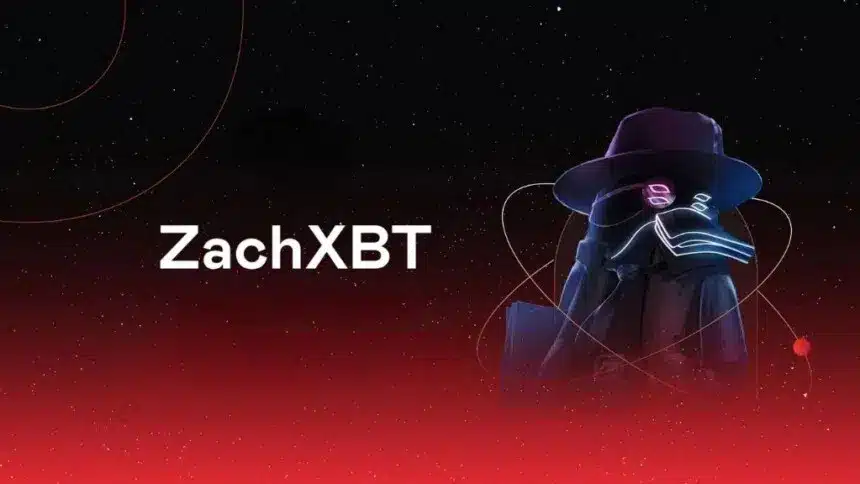In a fiery exchange on X (formerly Twitter) on October 5, blockchain investigator Zachary Wolk, known as ZachXBT, accused prominent crypto influencer Zion “Ansem” Thomas of engaging in unethical memecoin pump-and-dump schemes. The dispute shone a spotlight on Thomas’ alleged role in promoting low-cap Solana-based memecoins to his 507,000 followers, sparking concerns over his influence on the volatile memecoin market.
Wolk’s accusations stemmed from Thomas’ frequent promotion of new, low-cap tokens — cryptocurrencies with small market capitalizations — which Wolk argued was a tactic used to mislead and exploit less experienced retail investors. In his sharp criticism, Wolk claimed that Thomas lacked a genuine trading edge and instead resorted to hyping memecoins to boost their price, only to see them crash shortly after.
Memecoins and Market Manipulation – A Contentious Issue
The debate kicked off when Wolk mentioned Thomas during a discussion about Murad Mahmudov’s “Memecoin Supercycle” speech at the Token 2049 event in September. Mahmudov, who formerly led the now-defunct Adaptive Capital hedge fund, has been a vocal advocate for memecoins, generating buzz with lists of his top picks. While Mahmudov is a recognized figure in the crypto space, Wolk was quick to accuse him, and by extension Thomas, of using their influence to artificially pump the value of these coins.
Thomas responded by defending his position, challenging the idea that promoting low-cap coins was inherently exploitative. He cited Dogwifhat (WIF) as a success story, claiming that he had flagged the coin to his followers when its market cap was just $100,000. According to Thomas, WIF eventually surged to a peak value of $4.8 billion in March, far outperforming more traditional tokens like Chainlink (LINK), which has struggled in comparison.
Despite this, Wolk remained skeptical, accusing Thomas of repeatedly pushing “low-cap garbage” such as BODEN, HOBBES, ZEUS, and WYNN — coins that have plummeted in value, some by over 98% from their all-time highs. These memecoins, along with celebrity-endorsed tokens tied to stars like Jason Derulo and Davido, have become notorious for their extreme volatility, often leaving retail investors holding the bag.
The Rise of Memecoins – A Divisive Trend
Memecoins have been a lightning rod for controversy in the crypto world. Supporters argue that tokens like Dogecoin (DOGE), Pepe (PEPE), and WIF represent a unique investment opportunity, offering outsized returns that far surpass those of traditional utility tokens. Memecoins, which are often launched as a joke or with no clear use case, have nonetheless captured a significant portion of retail traders’ attention, driving their meteoric rise.
However, critics argue that memecoins are little more than a vehicle for exploitation, allowing insiders and early investors to make quick profits at the expense of everyday traders. The pump-and-dump model, where a token’s price is artificially inflated and then sold off by those in the know, has become a serious concern as memecoin volatility continues to wreak havoc on the portfolios of inexperienced investors.
The Future of Memecoins – Risk or Reward?
As the debate rages on, the question remains: Are memecoins a legitimate path to profit, or are they a ticking time bomb for retail investors? For Thomas and his supporters, the potential for massive gains makes the risk worth it. For critics like Wolk, the danger of losing money far outweighs the reward, with many memecoins crashing to near-zero shortly after their hype fades.
In a market that thrives on speculation, the clash between memecoin promoters and their critics will likely continue as investors grapple with the risks and rewards of this controversial corner of the crypto world.
Disclaimer: The information in this article is for general purposes only and does not constitute financial advice. The author’s views are personal and may not reflect the views of Chain Affairs. Before making any investment decisions, you should always conduct your own research. Chain Affairs is not responsible for any financial losses.



